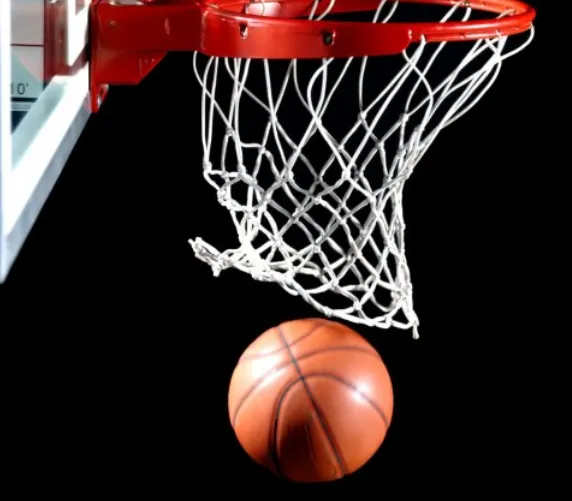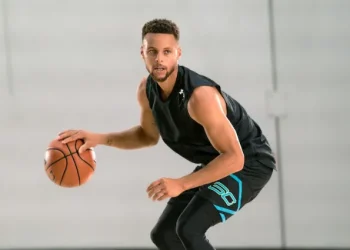Every year, over 250 million people worldwide play basketball, proving just how captivating the sport is. For anyone eager to step up their game—whether you’re new to the court or already experienced—mastering the right skills and strategies is essential. This guide provides a structured path to help you grow from a beginner into a well-rounded player.
Building Strong Fundamentals
At the heart of basketball success lies consistency with the basics. Developing your dribbling, shooting, and defensive abilities early on will form a foundation for advanced techniques later. Training isn’t just about memorizing moves—it’s about repeating them until they become second nature.
Essential Dribbling Skills
Dribbling is more than simply bouncing the ball; it’s your control tool. Learn these techniques to expand your options during games:
Basic dribble: Keeps the ball protected while moving steadily.
Speed dribble: Allows for quick transitions up the court.
Crossover: Shifts the ball between hands to shake defenders.
Behind-the-back dribble: Provides control while protecting the ball from pressure.
To dribble effectively, stay low, keep your eyes up, and control the ball with your fingertips. Consistent practice builds coordination and confidence.
Sharpening Your Shooting Accuracy
Shooting is the most direct way to influence the scoreboard, and accuracy comes down to technique:
Wrist snap: A controlled follow-through keeps the ball on target.
Focus point: Aim for the front of the rim to increase precision.
Balance: Proper footwork and body stability ensure consistency.
Regular practice from different positions—under the hoop, mid-range, and beyond the arc—will prepare you for real game scenarios.
Rebounding Like a Pro
Securing rebounds often decides possessions. Improving your rebounding involves:
Reading the shooter’s release and tracking the ball’s flight.
Timing your jump instead of leaping too early.
Positioning your body to block opponents and claim space.
Studying how elite players fight for boards can inspire better anticipation and timing.
Mastering Defense and Teamwork
A strong defense doesn’t just prevent scoring—it creates opportunities for fast breaks and easy points. To excel defensively, work on footwork, positioning, and communication.
Team coordination is equally crucial. Clear communication ensures everyone understands defensive matchups and offensive intentions. Each position on the court has its own responsibilities—point guards direct the offense, wings focus on scoring, and big men control the paint. When each player fulfills their role effectively, the team functions as a cohesive unit.
Offensive and Defensive Strategies
Basketball is a tactical game. Offensively, you’ll encounter plays such as:
Fast breaks for quick scoring.
Three-point spacing to stretch defenses.
Ball movement plays to create open looks.
Defensively, flexibility is key. Teams use man-to-man defense, zone coverage, or full-court press depending on the opponent. Adapting to situations is what separates strong teams from average ones.
Choosing and Caring for Your Basketball
The ball itself impacts your practice and performance:
Rubber: Best for outdoor courts; durable and affordable.
Composite leather: Versatile and good for multiple surfaces.
Genuine leather: Designed for indoor play; offers superior grip and feel.
Whichever ball you choose, maintain it by keeping proper air pressure, cleaning it regularly, and storing it in a dry environment to extend its lifespan.
Fitness Training for Basketball
Basketball demands stamina, strength, speed, and agility. Incorporate these workouts into your routine:
Endurance: Long-distance runs or swimming for cardiovascular health.
Strength: Squats, deadlifts, and push-ups for power and stability.
Agility: Ladder drills and cone runs to sharpen reaction time.
Explosiveness: Box jumps and sprints to boost vertical leap and acceleration.
A well-rounded conditioning program will not only elevate your game but also keep you resilient against injuries.
Mental Preparation and Handling Pressure
Success on the court isn’t only physical. Mental toughness plays a big role in how you perform under stress:
Breathing techniques calm nerves and restore focus.
Positive self-talk builds confidence during tense moments.
Visualization prepares you mentally by imagining successful plays.
Mistakes are part of the process. Analyze them, learn from them, and turn setbacks into stepping stones for improvement.
Gaining Experience Through Games
No amount of drills can replace actual competition. Playing in real games exposes you to unpredictable situations, forcing you to adapt quickly. The more you play, the better you’ll handle pressure and refine your instincts.
Final Thoughts
Improving at basketball requires balance: technical practice, physical conditioning, mental strength, and teamwork. From the fundamentals of dribbling and shooting to advanced tactics and fitness, every piece matters. Stay consistent, embrace challenges, and keep pushing yourself forward. With persistence and dedication, the leap from beginner to skilled player is within your reach.












